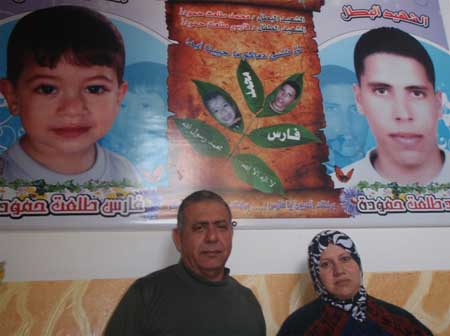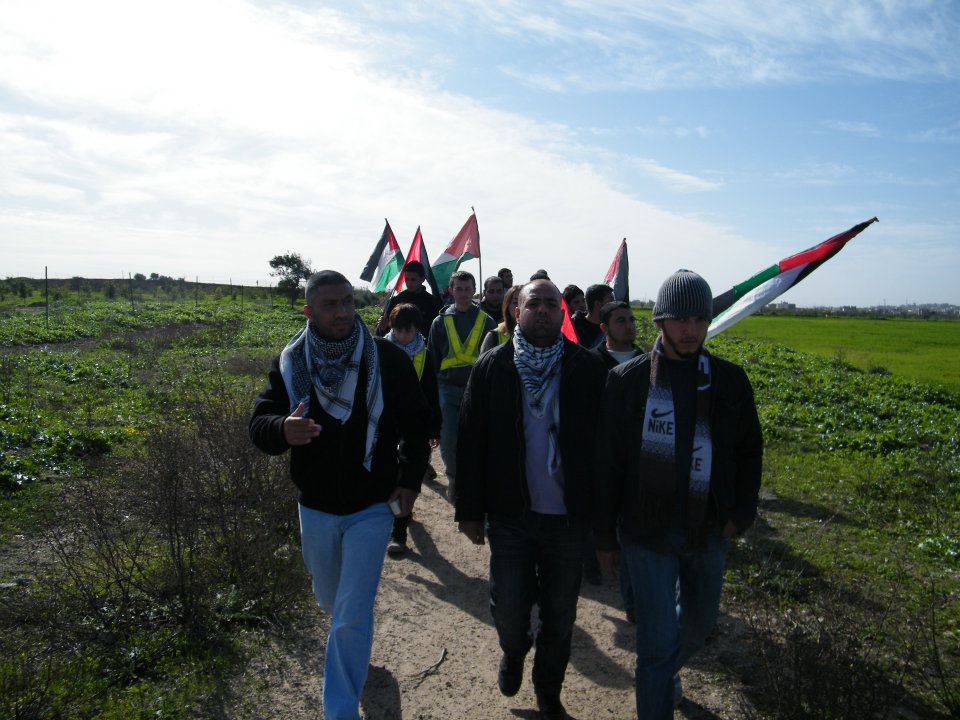-
11 January 2009: The Hamouda family
11 January 2012 | Palestinian Centre for Human Rights “I cannot even pick up another child in my arms, I had a new grandchild, he is six months old, but I have yet to take him in my arms, I feel that place belongs to Fares” In the early morning of 11 January 2009, the […]
-
Resistance continues, demonstration in the No Go Zone
by Nathan Stuckey 11 January 2012 | International Solidarity Movement, Gaza Every Tuesday we gather in front of the Beit Hanoun Agricultural College, members of the Beit Hanoun Local Initiative, the International Solidarity Movement and other activists from all over Gaza. We gather, and we march into the no go zone. Sometimes we are shot […]
-
Bedouin village of Umm Al Kheer under demolition threat, South Hebron Hills
10 January 2012 | Operation Dove On January 8th, the DCO delivered stop working orders to 8 infrastructures in the Palestinian village of Umm Al Kheer. In the morning the Israeli Civil Administration, escorted by an Israeli army jeep, entered the Palestinian village of Umm Al Kheer. After examining different buildings, the officers registered the […]
Action Alert An Nabi Saleh Apartheid Wall Arrests BDS Bethlehem Bil'in Cast Lead Demonstration Denial of Entry Ethnic Cleansing Farmers Gaza Global Actions Hebron House Demolition International law Israeli Army Jerusalem Live Ammunition Nablus Ni'lin Prisoner Ramallah Rubber-coated steel bullets Settlement Settlers Settler violence Tear-Gas Canister Video


